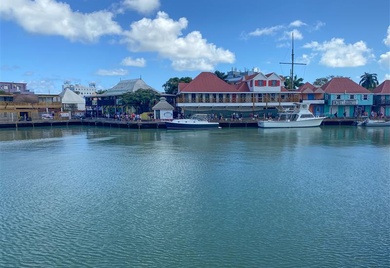Financial Health Bridges Access and Impact to Catalyze Prosperity

The financial sector in Latin America and the Caribbean has undergone a profound transformation.
From early experiments in microfinance to today’s push for broad-based financial participation, the region has evolved from expanding access to financial services to pursuing impact at scale.
This journey began in the 1970s when visionaries like Muhammad Yunus pioneered the concept of microcredit.
By the 1980s and 1990s, the Inter-American Development Bank and later IDB Lab played catalytic roles, supporting nonprofit microfinance institutions (MFIs) and then helping to create regulated, for-profit entities that reached underserved populations.
Microfinance showed that trust in underserved entrepreneurs pays off. It laid the foundation for broader efforts—first transactional, now transformational.
Since 2016, IDB Invest has been scaling responsible financial participation by investing in banks, MFIs, and cooperatives with capital, risk-sharing tools, and advisory services.
Innovation and Acceleration
The acceleration came with a convergence of technology, necessity, and ambition. According to the World Bank’s Findex, bank account ownership in Latin America and the Caribbean surged from 55% in 2017 to 73% by 2021—driven by the pandemic’s urgency and digitization.

New business models emerged across the region. Agent networks, digital wallets, and fintech platforms unlocked new markets.
IDB Invest broadened its strategy—from expanding access to creating financial ecosystems that foster resilience, integration, and prosperity.
Promoting financial participation today means more than providing access. It means affordability, usability, and trust. It requires integrated solutions—credit, savings, insurance, and payments—paired with digital tools, education, and advisory support.
We are moving from access to outcomes.
Financial Health
Technology remains a force multiplier.
For instance, Caja Los Héroes in Chile: a $50 million IDB Invest loan enabled a digital transformation that expanded access for the elderly and vulnerable populations.
You May Also LIke
- Expect Big Things: Five Sustainable Business Trends for 2025
- Let’s Unleash an AI Supercharged Just Transition
Or Brazil's PIX system brought over 70 million people into the financial system through free and instant payments.
But the future isn’t just digital; it’s outcomes-based.
Financial health goes beyond products. It measures people’s and firms’ ability to manage day-to-day finances, navigate shocks, and invest in their future.
IDB Invest is anchoring financial services around financial health, embedding financial tools into sectors like agriculture, e-commerce, and health. These solutions are more resilient, equitable, and sustainable, especially in remote or underserved areas.
Systemic Collaboration
This evolution is now embedded in institutions. In 2024, the IDB Group launched FINLAC, a regional platform convening financial institutions, investors, regulators, and innovators to co-create knowledge and mobilize capital for financial health outcomes.
The global community is also aligning.
Her Majesty Queen Máxima's new mandate as UN Special Advocate for Financial Health, along with the Bank for International Settlements' (BIS) research on consumer protection, financial literacy, and open finance, reflects a growing consensus: financial health is the new frontier.

Call to Action
The region is laying the groundwork with fintech laws, regulatory innovation, and blended finance. IDB Invest is deploying financial products, including loans, guarantees, and equity, with embedded digital tools and technical assistance to drive this shift.
We are not just financing institutions. We are defining standards, creating new markets, and catalyzing financial systems that serve people and measure success by their ability to improve lives.
Latin America and the Caribbean can become a global benchmark for financial health. But this requires bold partnerships, visionary regulation, and next-generation investment.
From AI-powered underwriting to blockchain-based ID systems, the tools are here. Now is the time to deploy them for good.
Financial health is not just a buzzword; it's a vital aspect of overall well-being. It is a strategy for participation, resilience, and shared prosperity. As pioneers of microfinance and champions of innovation, we at IDB Invest are committed to shaping a future where finance is a force for equity and impact.
The next chapter is being written now, starting with outcomes that matter.
LIKE WHAT YOU JUST READ?
Subscribe to our mailing list to stay informed on the latest IDB Invest news, blog posts, upcoming events, and to learn more about specific areas of interest.
Subscribe



